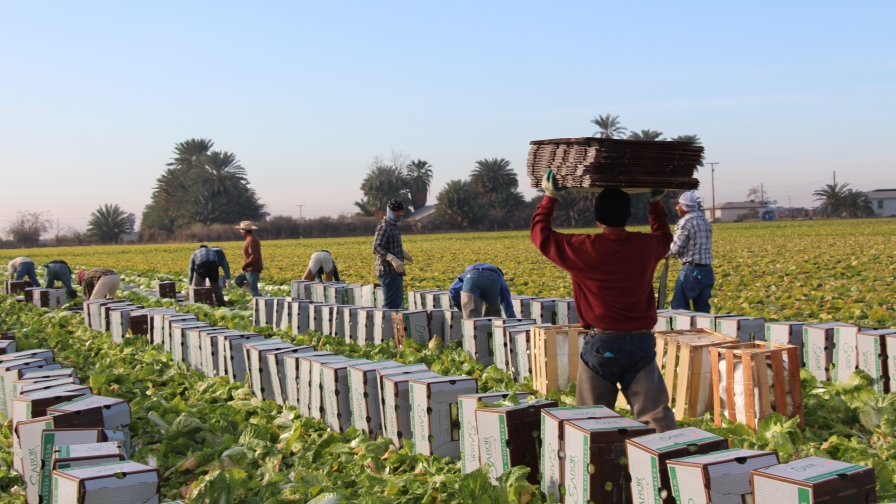Building Bridges to Agriculture by Engaging Veteran Communities
Engaging with veteran communities through your farm is not just socially responsible — it’s a strategic advantage that could supercharge your operation’s marketing prowess and business growth. Maybe you already know a veteran on your team or want to recruit more to your operation. That’s a great start, and here’s why.
Veterans possess a unique set of skills and experiences that align well with the demands of agriculture, making them ideal partners for farms and businesses looking to foster innovation and resilience.
Eleven percent of farmers and ranchers in the U.S. are veterans, according to the 2017 Census of Agriculture. And this figure is expected to grow. USDA is expected to continue offering substantial grants to private and nonprofit stakeholders to support veterans in agriculture.
Why Agriculture Appeals to Veterans
Many veterans are drawn to farming and agriculture due to the therapeutic benefits it offers and its alignment with military skills such as discipline, leadership, and strategic planning, USDA data shows.
The structured yet dynamic nature of agricultural work provides a sense of purpose and community for veterans transitioning to civilian life. Recognizing these factors, agricultural businesses have an opportunity to tap into this valuable talent pool by developing tailored communication strategies that resonate with veteran communities.
Effective Communication Strategies
Here are a few effective communication strategies for agricultural businesses to connect with this historically underserved community to foster mutual growth and understanding.
First, Understand the Veteran Experience
To effectively engage veterans, it is crucial to understand their experiences and challenges. This involves recognizing the unique transition from military to civilian life and the specific needs that arise from it.
Agricultural businesses should invest in training programs and workshops that provide insights into military culture and the veteran experience, facilitating a more empathetic and informed approach to communication.
For more support look at what Veterans to Farmers (VeteransToFarmers.org) is doing to prepare and train veterans to work in agriculture.
Leverage Veteran Networks
Utilize existing veteran networks and organizations as channels for communication. These networks are trusted sources of information and can help disseminate opportunities and resources effectively.
Partner with veteran service organizations to co-host events, workshops, and job fairs that focus on agriculture, creating a platform for direct interaction and engagement.
One target of opportunity is the Farmer Veteran Coalition (Conference.FarmVetCo.org) which hosts an annual Stakeholder Conference billed as “the largest national annual gathering of the agriculture and military communities.”
Highlight Success Stories
Share stories of veterans who have successfully transitioned into agriculture and are thriving.
These narratives can serve as powerful testimonials that inspire and motivate other veterans to consider careers in agriculture. Feature these stories in newsletters, blogs, and social media to maximize their reach and impact.
Take a page out of USDA’s playbook and showcase an employee in your operation — show what’s possible when a veteran comes to work at your company.
Create Community Engagement Opportunities
Host events that bring together veterans and agricultural professionals to share experiences and knowledge.
Community gardens, farm tours, and volunteer days are excellent ways to engage veterans and demonstrate the inclusive and supportive nature of the agricultural community. These activities not only promote interaction but also build lasting relationships that benefit both veterans and businesses.
Armed to Farm (ArmedToFarm.org) regularly hosts classroom training and learning for veterans across the U.S. with opportunities to network with peers.
By adopting effective communication strategies and fostering an inclusive environment, agricultural organizations can leverage the unique skills and experiences of veterans, driving mutual growth and success.
We encourage agricultural businesses to take proactive steps in building bridges with veteran communities. Together, we can create a more resilient and innovative agricultural industry that honors and supports those who have served our country.
Benefits of Engaging with Veterans
- Skill Alignment: Veterans bring a wealth of skills that are directly transferable to agriculture, including logistics, problem-solving, and leadership.
- Community Strengthening: Engaging with veterans strengthens community ties and supports social cohesion, enhancing local support networks.
- Enhanced Innovation: Veterans’ diverse experiences can lead to innovative approaches and solutions within agricultural practices, driving industry advancement.










